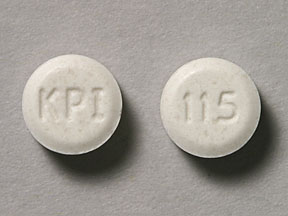
Liothyronine Sodium Coupons & Savings Card – Discount Prices from $24.50
Generic for: Cytomel, Pcca t3 sodium, Liomny
My prescription
Edit
5MCG, Liothyronine Sodium (90 Tablets)
Select pharmacy

CVS
$33.57
COUPON PRICE
Walmart
$24.50
COUPON PRICE
Albertsons
$28.84
COUPON PRICE
Walgreens
$37.89
COUPON PRICELiothyronine Sodium savings card
Show this card to your pharmacist
Walmart
$24.50
BIN
ID
PCN
GRP
015995
LHKPX278306
GDC
DR33
Powered by
More prescriptions for thyroid cancer
More prescriptions for thyroid cancer
Price history for Cytomel (brand) & Liothyronine Sodium (generic)
90 Tablets, 5MCG
Average retail price for Cytomel
Average retail price for Liothyronine Sodium
Average SaveHealth price for Liothyronine Sodium
Our price history data is based on aggregated prescription data collected from participating pharmacies in America. Our prescription data updates daily to reflect the latest price changes. If you notice a missing data point, it means there wasn't sufficient data available to generate a monetary value for that date.
We analyzed Liothyronine Sodium prices for (5MCG, 90 Tablets) over the last 12 months. The average retail price was $71.66, while the average price using the SaveHealth discount card was $33.85. That's a savings of approximately 52.76% when using our Liothyronine Sodium coupon.
Compared to the generic version, Cytomel had an average price of $86.31 over the same time period. With the SaveHealth savings card, Liothyronine Sodium is 60.78% cheaper on average than Cytomel.
*Retail prices are based on pharmacy claims data, and may not be accurate when we don't have enough claims.
Liothyronine Sodium dosage forms
Dosage Quantity Price from Per unit 5MCG 90 Tablets $34.54 $0.38 5MCG 30 Tablets $11.31 $0.38 5MCG 60 Tablets $20.13 $0.34 5MCG 100 Tablets $36.71 $0.37 5MCG 1000 Tablets $134.10 $0.13 25MCG 30 Tablets $18.63 $0.62 25MCG 90 Tablets $38.85 $0.43 25MCG 100 Tablets $40.24 $0.40 25MCG 1000 Tablets $165.70 $0.17 50MCG 90 Tablets $44.91 $0.50
| Dosage | Quantity | Price from | Per unit |
|---|---|---|---|
| 5MCG | 90 Tablets | $34.54 | $0.38 |
| 5MCG | 30 Tablets | $11.31 | $0.38 |
| 5MCG | 60 Tablets | $20.13 | $0.34 |
| 5MCG | 100 Tablets | $36.71 | $0.37 |
| 5MCG | 1000 Tablets | $134.10 | $0.13 |
| 25MCG | 30 Tablets | $18.63 | $0.62 |
| 25MCG | 90 Tablets | $38.85 | $0.43 |
| 25MCG | 100 Tablets | $40.24 | $0.40 |
| 25MCG | 1000 Tablets | $165.70 | $0.17 |
| 50MCG | 90 Tablets | $44.91 | $0.50 |
| 50MCG | 100 Tablets | $46.98 | $0.47 |
